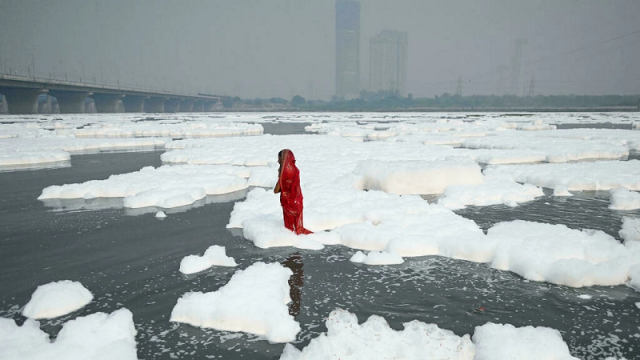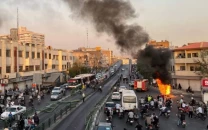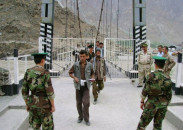Toxic foam covers India's sacred Yamuna river
Polluted water did not deter several Hindu worshippers from taking a dip in the river to mark 'Chhath Puja'

One of India's holiest rivers was coated with toxic foam on Monday, adding to the woes of New Delhi residents already enduring a blanket of thick smog over the capital.
The Yamuna is already one of the most polluted waterways in the country but parts of the river, which courses through the centre of Delhi, were coated in mounds of white foam resembling snowfall.
The city government blamed the blight on "heavy sewage and industrial waste" discharged into the river from further upstream last week.
It did not deter several Hindu worshippers from taking a dip in the river to mark Chhath Puja, a four-day festival to offer prayers to the sun.
Devotees performing Chhat Puja in Delhi are forced to take a dip in toxic Yamuna. Large number of people celebrate Chhat in Delhi and this shows his commitment towards providing facilities to those who observe the rituals. This is what Arvind Kejriwal has reduced Delhi to. Shame. pic.twitter.com/pLX669isGp
— Amit Malviya (@amitmalviya) November 8, 2021
But the pollution did disrupt water supply to part of the city, according to local officials, who did not say how many households had been affected.
"I would like to thank the affected residents for their cooperation," Raghav Chadha, vice-chair of the city's water authority, said in a Sunday statement.
Also read: Diwali leaves Delhi wheezing in dangerously unhealthy air
"Our team of officers and engineers are working day and night to ensure Delhi residents' water woes stay at a minimum."
Indian officials have long pledged to clean the Yamuna but without success, and the blooms of toxic foam have become an annual occurrence.
A 2020 government report found water quality in the river had become "critically worse" over the last five years.
People take dip in Yamuna river near Kalindi Kunj in Delhi on the first day of #ChhathPuja amid toxic foam pic.twitter.com/nrmzckRgdq
— ANI (@ANI) November 8, 2021
Delhi and its surrounds have also been engulfed in thick and hazardous smog since last week.
The haze has been compounded by agricultural fires in nearby farming communities and a barrage of fireworks set off by the capital's residents to mark Diwali, despite a ban on their sale.
Levels of harmful PM 2.5 particles have topped 400 in several areas, which is 16 times higher than the daily safe limit set by the World Health Organisation.



















COMMENTS
Comments are moderated and generally will be posted if they are on-topic and not abusive.
For more information, please see our Comments FAQ